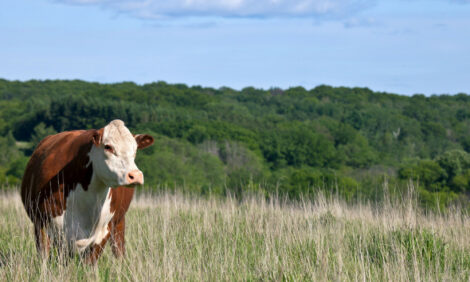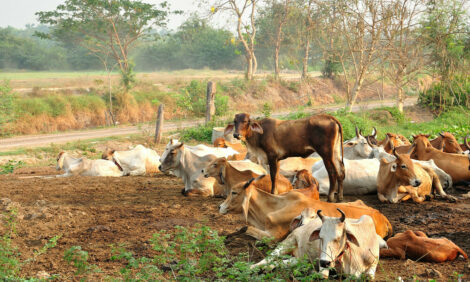



Manure Management Web Resource Available
KANSAS, US - The topic is always the science of manure management at the Livestock and Poultry Environmental Learning Center, which connects experts from land-grant universities and federal agencies with animal producers and their advisers.The primary tool for making this connection is http://www.extension.org/, then click on Animal Manure Management. This is the Web-based collaborative environment where research experts share knowledge to help producers and their advisers solve challenges.
The center is part of the national eXtension interactive Web resource customized with links to local Cooperative Extension Web sites. Kansas State University’s K-State Research and Extension, is a part of the national eXtension effort.
eXtension’s Livestock and Poultry Environmental Learning Center, launched in March 2008, logs more than 12,000 accesses per month. Its objective is to be your first stop for science-based information on animal manure issues. More than 150 representatives of land grant institutions, U.S. Department of Agriculture, U.S. Environmental Protection Agency and other partners are contributing to the site’s content.
“The most popular resources are the live and archived Web casts,” said Jill Heemstra, manure management extension educator in Nebraska and the national coordinator for the center. “When we have a live Web cast, people from about 100 sites log on, but each recorded Web cast receives more than 70 views every month.”
Live web cast presentations occur at 1:30 p.m. Central on the third Friday of each month. Twenty archived web casts are currently accessible.
Approximately 20 hours of certified crop adviser continuing education credits are available in nutrient management and water quality by attending archived Web casts. CEUs can be earned by attending one-hour workshops and taking 10 question multiple choice quizzes managed by American Society of Agronomy's Certified Crop Adviser Program. Archived topics include emerging contaminants such as pathogens and antibiotics, manure treatment technology options, options for increasing the value of manure, and considerations for nutrient planning.
In addition, the Web site offers some additional critical resources including:
- A newsletter promoting upcoming Web casts and summarizing research projects and new resources on animal manure issues.
- More than 100 Web pages on manure treatment technologies, storage and handling, environmental planning, regulations, small farms, nutrient management plans and more. eXtension has a database of frequently asked questions. Web pages summarize critical issues associated with the above topics and connect the reader to recommended resources for those needing more in-depth information.
- If the database doesn’t have a ready answer for your individual questions, the question goes to university experts in the “Ask the Expert” resource.
New resources planned for the next year include research-based information on antibiotics and hormones, air quality and grazing system water quality. The center is also developing online learning lessons that can be used to meet continuing education requirements.
Mark Risse, a professor at the University of Georgia and one of three co-leaders for the project, said the Web site has a wider audience than anticipated.
“Beyond people that advise producers, county extension agents, Natural Resources Conservation Service (NRCS) staff and consultants, we are finding policy makers, producers, the general public and even other scientists are using the Web site,” Risse said. “It is the best science-based information on manure compiled from around the country to a single site. Users are coming to it to answer specific questions, for general education and for continuing education.”
The center is funded by a grant through the U.S. Department of Agriculture’s Cooperative State Research Extension and Education Service (CSREES) with additional support from eXtension. Land-grant colleges were founded on the ideals that higher education should be accessible to all, that colleges should teach liberal and practical subjects and share knowledge with people throughout their states.
TheCattleSite News Desk


